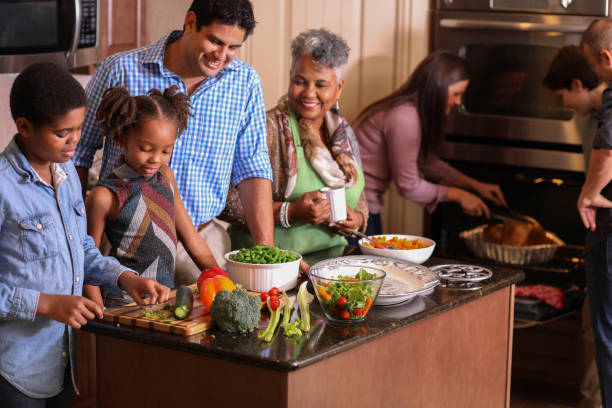The holiday season is a beautiful time to reconnect with loved ones and take stock of where we are and where we are headed. However, for so many of us, that stretch between November and January is also littered with landmines that can threaten both our sobriety and our soulbriety. It seems as if this time exacerbates whatever pressures we are already feeling in our lives—with challenges that may be specific to our own personal healing journey.
For example, if we have a need to people-please and make everything “OK” for others, we may also find ourselves navigating family dynamics that are deeply triggering because they pull us back into roles from which we have been working so hard to break free. As a result, we often try to rectify the real or perceived shortcomings we have as parents, children, romantic partners, and friends—usually, by overextending ourselves at the risk of our own well-being. We may feel obligated to put up out-of-town relatives in our home or accept invitations to parties we don’t want to attend, both of which can disrupt the routine that has kept us grounded, such as meditation and AA meetings. In fact, the mere thought of having to explain that routine to family and friends could be enough to put it on the back burner just when we need it the most.
Then, there’s the financial burden we can feel over the holidays, with many people overspending on gifts—sometimes, to keep up with the Joneses; other times, to prove their worth; and still other times, to overcompensate for focusing on their recovery at the expense of cultivating relationships. On top of this, the holidays can bring up traumatic memories that are connected to addiction, family dysfunction, and painful memories. This causes stress not only during the holiday season, but throughout the year, as people cycle through anxiety about debt, relational issues, and the “crash” that can come after all the time and energy spent on anticipating the holidays and then recovering from them.
For many people who have come to their soulbriety journey, it’s important to recognize the moments when we are being performative—when there is constant pressure to be “on,” assume a happy face, and demonstrate to others that we have it all together. We might feel especially pressured if they are aware of or have witnessed our behaviors while we were still in the throes of our addiction.
If you are worried about backsliding during the holiday season, know that you can design your experience so it is in alignment with your healing journey by observing the following tips:
- Lean on your soul tribe. When stretched thin by holiday obligations, reach out to family—be it the one you were born into or your chosen family—to talk about and process your feelings. Start a group chat so everyone can support each other. Bring a sober friend to parties where people will be drinking. Remember, too, that your tribe can extend beyond people you personally know. When you are feeling isolated or overwhelmed, listen to audiobooks from your favorite leaders in personal development and spirituality.
- Stay vigilant and flexible. Although we may not always have complete control over our schedule, the holidays are an opportunity to renew our commitment to soulbriety during these hectic times. If your calendar is filled with parties and shopping, create a new one that carves out time for self-care, such as moving your evening meditation practice to first thing in the morning and/or attending another yoga class, meeting, etc.
- Say no. If you are not comfortable attending a certain event or spending time with people who trigger you, politely but firmly decline. Share as little or as much about your reasons with them, with no expectation that they will understand and no obligation to explain yourself to them. Remembering what you can and cannot control will help you stay focused, first and foremost, on your soulbriety, rather than their reaction.
Finally, and most importantly, keep the holidays in proper context. Whatever this season means to you, it is just that—a season, and a brief one. It can also be seen as a microcosm of your life, meaning that your present circumstances are not a barometer for how healthy you are. It is how you handle them, and love yourself in the process, that matters.
